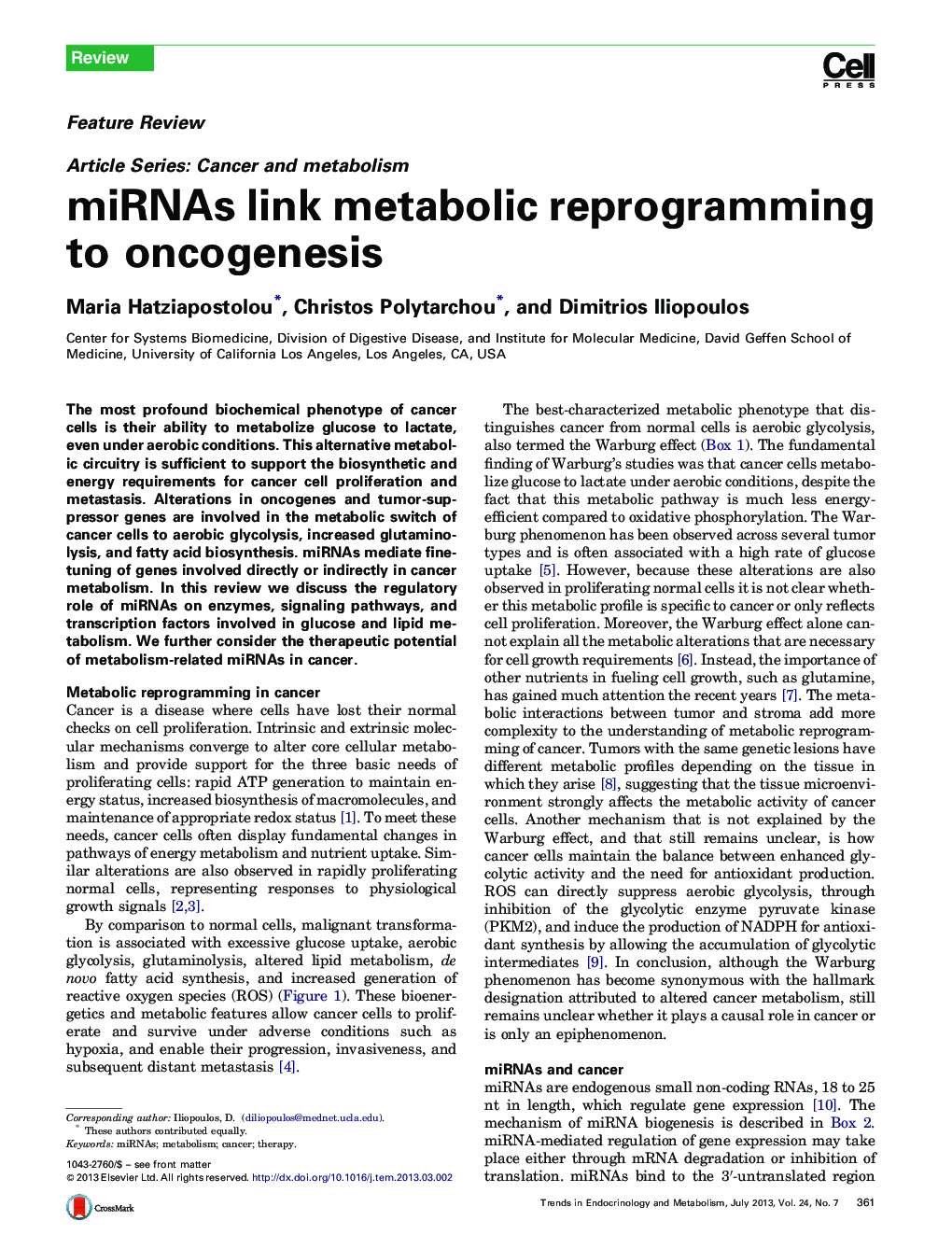| Article ID | Journal | Published Year | Pages | File Type |
|---|---|---|---|---|
| 2810439 | Trends in Endocrinology & Metabolism | 2013 | 13 Pages |
•Metabolic reprogramming is a central hallmark of oncogenesis.•Metabolic pathway alterations in cancer are tightly regulated by miRNAs.•miRNAs regulating metabolic pathways are frequently silenced or overexpressed in cancer.•miRNAs targeting the metabolic reprogramming cascade possess value for cancer therapy.
The most profound biochemical phenotype of cancer cells is their ability to metabolize glucose to lactate, even under aerobic conditions. This alternative metabolic circuitry is sufficient to support the biosynthetic and energy requirements for cancer cell proliferation and metastasis. Alterations in oncogenes and tumor-suppressor genes are involved in the metabolic switch of cancer cells to aerobic glycolysis, increased glutaminolysis, and fatty acid biosynthesis. miRNAs mediate fine-tuning of genes involved directly or indirectly in cancer metabolism. In this review we discuss the regulatory role of miRNAs on enzymes, signaling pathways, and transcription factors involved in glucose and lipid metabolism. We further consider the therapeutic potential of metabolism-related miRNAs in cancer.
